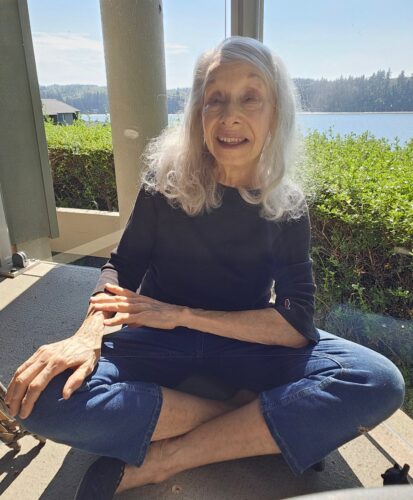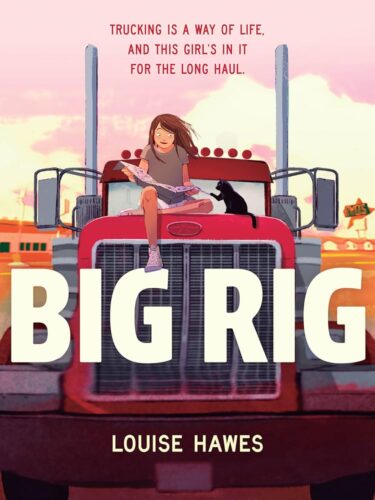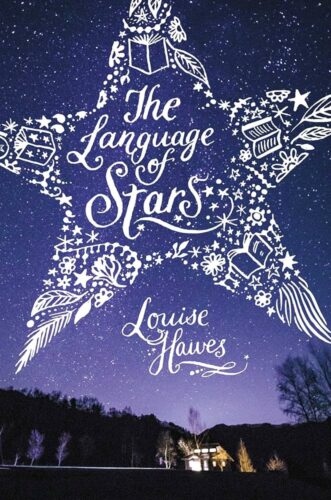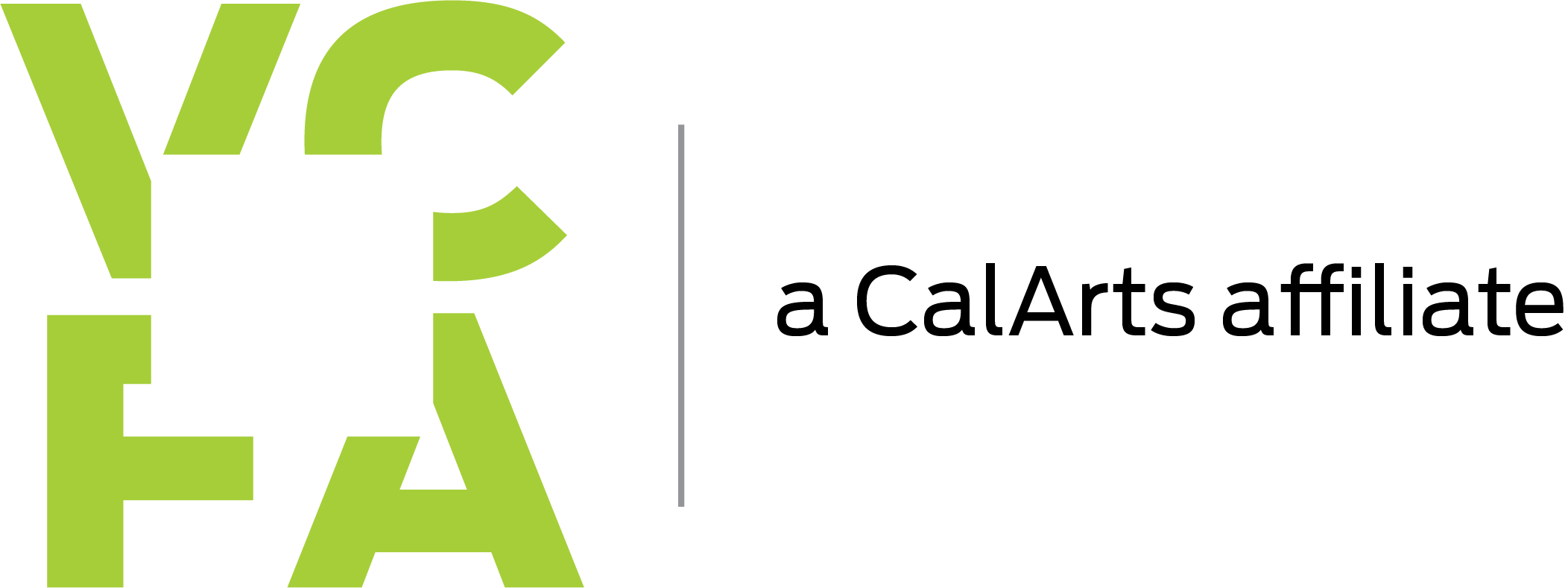FACULTY STORY: Louise Hawes
 In the summer of 2024, VCFA interviewed Louise Hawes, author, educator, and founding faculty member of the VCFA Writing for Children & Adults program. Hawes is the author of beloved titles for young readers such as Big Rig (Peachtree 202022), The Language of Stars (Simon & Schuster 2017), and The Vanishing Point (Houghton Mifflin Harcourt 2005). At VCFA, Hawes
In the summer of 2024, VCFA interviewed Louise Hawes, author, educator, and founding faculty member of the VCFA Writing for Children & Adults program. Hawes is the author of beloved titles for young readers such as Big Rig (Peachtree 202022), The Language of Stars (Simon & Schuster 2017), and The Vanishing Point (Houghton Mifflin Harcourt 2005). At VCFA, Hawes is known for her mentorship and deep impact on the very DNA of our MFA programs.
is known for her mentorship and deep impact on the very DNA of our MFA programs.
At VCFA’s summer 2024 residency, Hawes was named as the next Writing for Children & Young Adult Katherine Paterson Chair. VCFA established the Katherine Paterson Chair in 2018 to support and honor distinguished faculty in the WCYA program. Louise Hawes will serve as the Katherine Paterson Chair for two years.
Read our interview below to learn more about Hawes, her approach to mentorship at VCFA, the Katherine Paterson Chair, and her advice for students and writers.
The Interview
Q: First, can you share your name, pronouns, VCFA program and job title, and main artistic genres?
 A: Greetings! I’m Louise Hawes, she/her. I’ve been a member of VCFA’s Writing for Children and Young Adults MFA faculty since the program’s inception. Which means I’m proud and honored to refer to my position here as “Founding Faculty.” Because I’ve been writing for so many years, there’s hardly a genre I haven’t explored. Novel, short fiction, picture book, graphic novel, poetry, nonfiction—I’ve had the temerity and pleasure to try it all.
A: Greetings! I’m Louise Hawes, she/her. I’ve been a member of VCFA’s Writing for Children and Young Adults MFA faculty since the program’s inception. Which means I’m proud and honored to refer to my position here as “Founding Faculty.” Because I’ve been writing for so many years, there’s hardly a genre I haven’t explored. Novel, short fiction, picture book, graphic novel, poetry, nonfiction—I’ve had the temerity and pleasure to try it all.
Q: How many years have you been working with VCFA (whether it be on and off or full-time)?
A: The MFA Program in Writing for Children and Young Adults (WCYA) began in 1997. So the program and I have been working together, on and off, for 25 years. The degree we award was the first of its kind in the nation, and our first class of graduates were true pioneers! Since then, of course, the fact that our readers are tomorrow’s creative, cultural, and political leaders has spawned many other institutions that offer graduate degrees in our field.
Q: Why did the faculty and staff come together to create this program? What were some of the guiding principles put in place? How have you seen the program grow, evolve, and blossom?
A: When we compared notes, one experience all six founding faculty discovered we shared was telling new friends, fellow guests at parties, and other published authors that we wrote for children—and being greeted with responses that amounted to: “Oh, that must be fun! But when are you going to write something important?“
What, each of us wondered, could be more important than writing for tomorrow’s leaders, for the child and teen each of us has been, and for the children in all our lives? Young people were among the most committed, curious, and savvy book lovers we knew; yet before our program opened its doors, there were no formal studies available to help authors write stories about what these hungry readers experience, know, and feel.
As our program and those that followed its lead evolved, the field of children’s literature has expanded, gained new respect, and challenged writing for adults, both in scope and creativity. I’ve guest-taught in schools and universities across the country and overseas, and now I’m privileged to count as friends and colleagues, teachers of writing for children from around the world!
Q: Do you have a favorite VCFA memory or story that you still carry with you today?
A: I have so many VCFA stories! But my favorites are the ones that reveal how our one-to-one faculty to student semesters build mutual courage and growth; how faculty learn right along with our students. One example that still tickles me stems from my semester, years ago, spent with a new writer who was also an experienced athlete. She swam, played field hockey, but especially excelled in basketball. When she began our program, however, she was a little less daring in her writing, than on the court. I remember that, when I pointed out there were two characters in her work-in- progress serving the same essential purpose, feeling the same conflicts, she sighed and said she couldn’t bear to let the second, duplicate actor go.
Which is why I was very surprised by her next packet of work, in which she sent me pages and pages where this “twin” character was totally absent.”You did it!” I told her. “How on earth did you manage to do something so hard for you?”
“I just sat her down,” my student confided, grinning happily. “And I told her, ‘Thanks for playing!'”
Ever since then? I’ve told the walk ons and secondary characters I need to let go from my own writing, the very same thing. It works like a charm!
Q: We often hear WCYA students in particular talk about the “VCFA magic.” In your opinion, what is the VCFA magic?
A: The bonds that form as we work together to grow as writers at VCFA last a lifetime, as far as I can tell! Not a week goes by that I don’t hear from a former student, or catch up with someone I’ve had in a workshop. They tell me that their own writers’ groups, formed as they worked toward their MFA, still meet, and still support one another.
And yes, this long-term bonding doesn’t happen just with alums; it involves our whole community. WCYA students and graduates are sharing YA fantasies in a special readers’ group; alums are leading weekly online craft talks; students, alums, and faculty have formed an active online poetry forum, of which I’m proud to be a member; others are reading picture books together, even when there’s nobody under 18 listening! It all feels like a chance to nurture our writing skills together, to reach back to the children we were, and to assure young readers today that they have what it takes to flourish and grow, to dream, and to make a difference in the world. Doesn’t that sound like magic to you?
Q: You were recently appointed as the next WCYA Katherine Paterson chair. What does this position mean to you, and what does this chair position allow you to do as an educator and writer?
A: When I tell people who endows the Chair for which I’ve been lucky enough to be selected, the response is always the name of a book by Katherine Paterson. “Bridge to Terabithia!” someone will tell me. “That was my favorite book growing up!” Or, “I will never forget The Great Gilly Hopkins,” another will say. ” Or, from yet another devoted reader, ” Jacob Have I Loved still speaks to me.” Katherine is the author of stories that have helped form the spiritual and world vision of so many of us, it’s hard to underestimate her impact.
Which humbles and inspires me all at the same time. As someone who’s read and taught these books for decades, I can only hope to pass on the love, and to nurture new writers whose work will light up our nights and lift our hearts. And yes, the smaller teaching load involved in this position, also means I’ll have time to pass the precious word on at conferences and hopefully, in my own writing as well.
Q: What’s a piece of writing advice/mentorship you hope to share with your students?
A: Never forget, as Mary Oliver advises young poets, that you stand on the shoulder of giants. Don’t let writing your own stories stop you from reading those by authors you admire. Wade, bathe, and revel in the best writing you can find, the stories that make you shiver, the moments that leave you weak. Then? Breathe deep, get back to your pen or your laptop, and thank life that you’ve got work that fills you up, beginning to end.
Q: What advice would you give to any writers wondering if they should pursue an MFA?
A: Permission is a powerful tool. Giving yourself permission to spend two years learning to tell the stories only you can tell, will change your life and your writing. Your full-time job, your family, your community will still need you, but they will understand that the time you’re taking out each day or week or month, will fill you, bring you new skills and self-confidence, and maybe even a whole new career. Thank your family and friends for understanding this, then join us and write, write, write!

